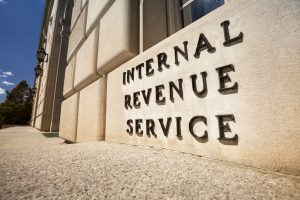
The IRS Issues Millions of IRS Notices Per Year
Porter Law Office, LLC has experience assisting taxpayers through the IRS Collection Process. Throughout the collection process, and as part of its standard function, the Internal Revenue Service (“IRS”) sends taxpayers many different letters and notices.
There are several reasons that the IRS sends notices to taxpayers. Typically, the IRS notice addresses specific items on your tax account or tax return from which the IRS needs additional information or clarification. Or, the IRS may be telling you that it intends to levy against your assets. Whatever the reason, the IRS mails millions of IRS notices each year.
This article addresses 7 tips for taxpayers who receive an IRS notice.
- Do NOT Ignore the Notice. Most IRS notices can be responded to quickly and without any difficult. But, it is very important to respond promptly.
- Typically, an IRS notice deals with a specific issue about your tax return or tax account. As an example, the notice may indicate that the IRS has corrected an error on your tax return, or it may request additional information from you. If you receive a more in depth notice, such as a notice of underreported income, Notice CP-2000, you should contact an experienced tax lawyer to discuss your response options.
- Always read the IRS notice very carefully. And, follow the instructions telling you what you need to do next.
- If the IRS notice says that the IRS corrected your tax return, you should review the information in the notice and compare it to your tax return. You will then have two options. If you agree with the information on the notice, you do not need to reply, unless a payment is due. If, on the other hand, you do not agree with the notice, you must respond to the IRS. You must write to the IRS and explain why you do not agree. You should provide the IRS with information you want the IRS to consider. Include the tear-off portion of the IRS notice with your correspondence. The IRS will provide an address to mail your correspondence on the lower left part of the notice. The IRS will respond to your letter in approx. 30 days.
- Some IRS notices are straight forward. For others, you may have questions or need clarification. If you are represented by a tax lawyer or CPA, that professional can contact the IRS on your behalf if a Form 2848, Power of Attorney and Declaration of Representative is on file. If you are not represented, you should call the phone number in the upper right corner of the notice. Make sure you have a copy of your tax return and the notice with you when you call.
- You should always keep copies of any notices you receive from the IRS. Best practices are to scan and save the IRS notice in electronic format and save for at least six years.
- Do not fall for phone scams or phishing email scams that use the IRS as a lure. The IRS first contacts people about unpaid taxes by mail—not by phone. The IRS does not contact taxpayers by email, text or social media about their tax return or tax account.
Columbus Tax Attorney | Ohio Tax Lawyer
Contact Porter Law Office, LLC
Porter Law Office, LLC has experience with stopping IRS enforced collection procedures. If you have received an IRS notice or letter that you do not understand, you should contact an experienced tax lawyer to discuss your options. Columbus tax attorney Matthew R. Porter, J.D., LL.M. assists taxpayers with resolving IRS collection matters and assists taxpayers with responding to IRS notices and letters. Contact Mr. Porter today for a free consultation to discuss your case.
